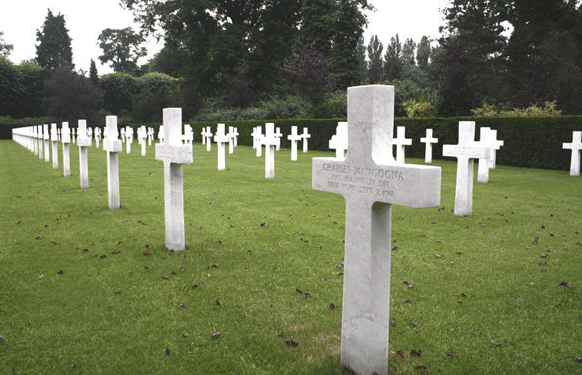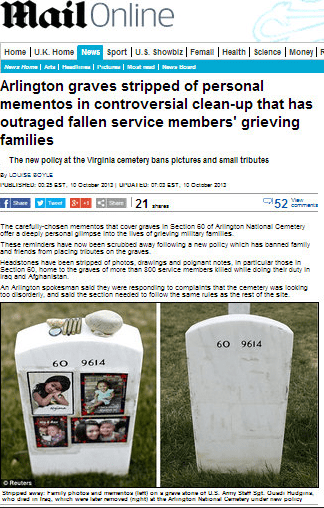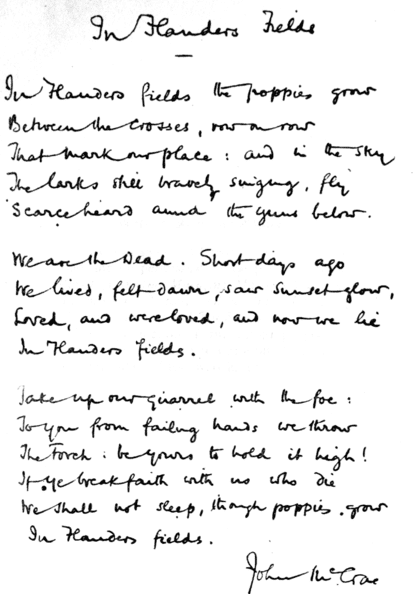Military cemeteries traditionally have a uniform look: clean, unadorned, orderly.

The appearance of the military crosses was immortalized in the lines of the poem “In Flanders Fields,” written by Canadian John McCrae during WWI on 3 May 1915:
In Flanders fields the poppies grow
Between the crosses, row on row,
That mark our place; and in the sky
The larks, still bravely singing, fly
Scarce heard amid the guns below.
Now, a century later, there has been a growing trend by families and friends to decorate military gravestones of their loved ones in Arlington National Cemetery, Virginia. Military authorities are reminding families that this decorating is not allowed. Photographs and mementos left at the gravesites have been removed, and the historical landmark cemetery has returned to its traditional appearance—with silent rows of gleaming tombstones.
A London newspaper ran a story on this clean-up project at Arlington National Cemetery last month.

Read the entire news story from the Daily Mail (London, United Kingdom), 10 October 2013, here: http://www.dailymail.co.uk/news/article-2451626/Arlington-graves-stripped-personal-momentoes-controversial-clean-up.html
Here is a copy of McCrae’s handwritten poem.

Lt. Colonel McCrae died 28 January 1918 while serving in France during WWI. He is buried in Wimereux Military Cemetery in northern France.
Here is the complete text of the poem “In Flanders Fields.”
In Flanders fields the poppies grow
Between the crosses, row on row,
That mark our place; and in the sky
The larks, still bravely singing, fly
Scarce heard amid the guns below.
We are the Dead. Short days ago
We lived, felt dawn, saw sunset glow,
Loved, and were loved, and now we lie
In Flanders fields.
Take up our quarrel with the foe:
To you from failing hands we throw
The torch; be yours to hold it high.
If ye break faith with us who die
We shall not sleep, though poppies grow
In Flanders fields.